Suchergebnisse für "Factsheet: Energietechnologien gestalten, die für alle sinnvoll und nutzbar sind"
IEA Bioenergy Task 39: Drop-in Biofuels - The key role that co-processing will play in its production (2019)

Der vorliegende Bericht beschäftigt sich mit der Schlüsselrolle der Co-Verarbeitung von Drop-In-Biokraftstoffen in der Raffinerie.
Susan van Dyk, Jianping Su, James D. McMillan, Jack (John) N. Saddler
Herausgeber: IEA Bioenergy Task 39
Mehrsprachig, 156 Seiten
Downloads zur Publikation
IEA EBC Annex 70: Building Energy Epidemiology: Analysis of Real Building Energy Use at Scale
Within the framework of the IEA-EBC Annex 70, causes of deviations between calculated and actual energy consumption in buildings were empirically investigated and requirements for data quality, characteristics and security were developed. Furthermore, recommendations were developed regarding the use of internationally uniform standards and methods for data collection, processing and evaluation.
IEA Bioenergy Task 39: Drop-in Biofuels – The key role that co-processing will play in its production (2019)

Der Bericht beschäftigt sich mit der Schlüsselrolle der Co-Verarbeitung von Drop-In-Biokraftstoffen in der Raffinerie.
Susan van Dyk, Jianping Su, James D. McMillan, Jack (John) N. Saddler
Herausgeber: IEA Bioenergy Task 39, 2019
Englisch, 156 bzw. 12 Seiten
Downloads zur Publikation
IEA EBC Annex 63: Implementation of Energy Strategies in Communities
Im IEA EBC Annex 63 wurden zwei neue Berichte veröffentlicht: "Application of Strategic Measures" sowie "Stakeholder Support Materials".
EGRD Workshop-Berichte
Der Bericht des Workshop "Space Cooling" vom Mai 2016 wurde veröffentlicht.
Aktuelle Publikationen des IEA-SHC Tasks 49
Aktuelle Publikationen zum Thema "Solare Prozesswärme" jetzt online verfügbar.
Highlights of Bioenergy Research 2020
January 24th, 2020
Messe Congress Graz, Messeplatz 1, 8010 Graz
National and international results from the IEA Bioenergy Tasks and the ERA-NET Bioenergy
IEA EBC Annex 63 publiziert drei neue Berichte
Im IEA EBC Annex 63 "Umsetzung von Energiestrategien in Gemeinden" wurden 2017 drei Berichte publiziert.
IEA Bioenergy
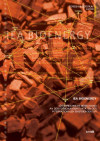
Österreichische Beteiligung an den Forschungsaktivitäten der internationalen Energieagentur
Forschungsforum
4/2000
Herausgeber: BMVIT
Deutsch, 6 Seiten
Downloads zur Publikation
Aktuelle Berichte aus dem IEA PVPS Programm
Im IEA Photovoltaik Power Systems Programm wurden der Annual Report 2016 sowie zwei weitere Bericht veröffentlicht.
IEA Wind Task 32: Webinar Summary - Approaches in filtering data from pulsed wind lidar (2020)

Zusammenfassung des Webinars "Filtering lidar data" vom 7. April 2020.
Alcayaga L., Floors R., and Santos P., ed. Clifton, A.
Herausgeber: IEA Wind
Englisch, 3 Seiten
IEA 4E EMSA: Policy Brief "Digital Technologies for Motor Systems" (2022)

Dieser Policy Brief beinhaltet eine Kurzfassung des EMSA Berichts zur Klassifizierung von Digitalisierungstechnologien in elektrischen Motorsystemen.
Konstantin Kulterer
Herausgeber: Österreichische Energieagentur, 2022
Englisch, 2 Seiten
Downloads zur Publikation
IEA Bioenergy Task 39, Newsletter, Ausgabe 53, December 2019

Diese Ausgabe enthält einen Artikel zum Thema „Biofuels Production and Consumption in Denmark: Status, Advances and Challenges“ sowie weitere aktuelle Informationen aus dem Task.
Mahmood Ebadian, Jack Saddler, Jim McMillan
Englisch, 16 Seiten
Downloads zur Publikation
IEA Bioenergy Task 39: Newsletter, Ausgabe 54, Mai 2020

Der Schwerpunkt dieser Ausgabe liegt auf dem Artikel zum Thema „Biofuels Production and Consumption in Germany: Status, Advances and Challenges“.
Mahmood Ebadian, Jack Saddler, Jim McMillan
Herausgeber: IEA Bioenergy Task 39, 2020
Englisch, 20 Seiten
Downloads zur Publikation
IEA Bioenergy Task 32 "Biomass Combustion and Cofiring"- Newsletter 01/2016
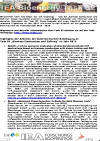
Herausgeber: Institut für Prozess- und Partikeltechnik
Deutsch, 4 Seiten
Downloads zur Publikation
IEA Bioenergy Task 32: Newsletter 01/2015
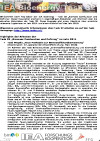
Herausgeber: Institut für Prozess- und Partikeltechnik
Deutsch, 5 Seiten
Downloads zur Publikation
Sensitivity of System Design on Heat Distribution Cost in District Heating (2014)
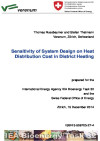
IEA Bioenergie Task 32
Thomas Nussbaumer, Stefan Thalmann
Herausgeber: Verenum und Schweizer Bundesamt für Energie
Englisch
Downloads zur Publikation
Status Report on District Heating Systems in IEA Countries (2014)
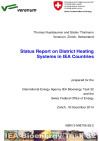
IEA Bioenergie Task 32
Thomas Nussbaumer, Stefan Thalmann
Herausgeber: Verenum und Schweizer Bundesamt für Energie
Englisch, 48 Seiten
Downloads zur Publikation
Energieforschungsstrategie Österreich
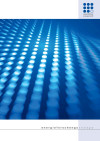
Making the Zero Carbon Society Possible!
Michael Cerveny, Johannes Gadner, Anton Graschopf, Michael Paula
Herausgeber: Rat für Forschung und Technologieentwicklung
Deutsch, 56 Seiten
Downloads zur Publikation
IEA SHC Task 59/EBC Annex 76: Deep Renovation of Historic Buildings - Towards lowest possible energy demand and CO2 emission (nZEB)
The goal of Task 59 was to document international best practice examples (knowledge base), develop a multidisciplinary planning process, and develop holistic retrofit solutions for historic buildings. As a knowledge base, the Historic Building Retrofit Atlas (www.HiBERatlas.com) emerged from the project. In the HiBERatlas more than 55 best practice examples are documented. In addition to the management of Subtask A (Knowledge Base) and Subtask C (Conservation compatible retrofit solutions & strategies), innovative technical and organizational retrofit solutions, which have already been applied in national demonstration projects and tested in practice, have been incorporated and further developed through the Austrian participation.
